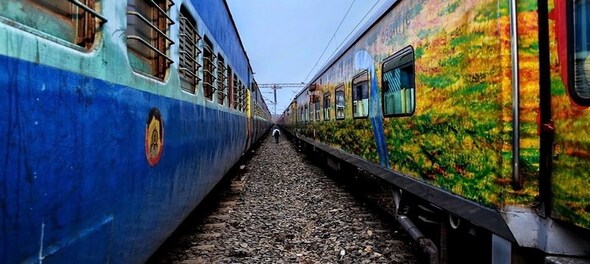
Case 1: Theft in train is not a deficiency of service
The Supreme Court on 16th June in Station Superintendent & Another vs Surender Bhola matter overruled the decision of the district consumer forum as upheld by the state and the national consumer forums that it was a case of deficiency of service under the Consumer Protection Act. The case was related to a theft in train when a bona fide passenger lost his rupees one lac cash tied on his person round his belt.
The SC judgement presumably would have been the same had the loss been of jewellery in a running train or for that matter any other movable property or goods. The apex court rightly wondered how the consequences of such losses occasioned by the carelessness of the traveller could be laid at the doors of the Railways.
To be sure, Railways is a service provider but it can at best be hauled up only for deficiency in the railway services, say for example, when its air conditioner in the AC coach wasn’t working properly and the coach attendant did not care to set it right. Indeed, the victims of the recent Balasore accident would be justified in pressing a class action suit on the ground that the Railways didn’t maintain its signalling devices properly or left them vulnerable to be sabotaged
But it is simply not possible for the Railways to guard each compartment assiduously nor is it possible for it to ensure that intruders, thieves and trespassers did not enter the train. In other words, a train is not like an aircraft which is completely sealed once its doors are tightly shut.
What the Railways could possibly do is to install CCTV cameras at as many points as feasible to discourage itchy palms and to help police nab the thief. Travellers on their part should not let down their guard and certainly not carry heavy cash or jewels either on their person or as part of their baggage.
It is good that the SC has struck down the National Consumer Forum verdict against the Indian Railways. For, had it been upheld and allowed to hold sway, the following bizarre consequences would have ensued:
But the freewheeling approach of the consumer forums have given a whole new bizarre interpretation of the term.
Case 2: Bank guarantee isn’t for all reasons and seasons
The Supreme Court on 14th June in Karandeep Singh vs CBI reiterated that for granting bails, bail bonds alone can be insisted upon and not bank guarantee. Accordingly, it modified the High Court order by replacing the requirement to furnish a bank guarantee for Rs 2 crore with an order to furnish two bail bonds of Rs 5 lac each for release on bail in a case involving twin charges.
The appellant had said the HC order to furnish a bank guarantee for Rs 2 crore was onerous. Indeed, it was. First, bank guarantees have their origin in commercial transactions where an exporter for example unfamiliar with the trade and legal practices of the country of the importer naturally wanted to safeguard his interest with a foolproof and failproof bank guarantee. But it doesn’t come cheap. Typically, it involves a fee of 1 percent per annum, and for banks it is much better than extending a loan as it is a non-fund-based source of income.
At the same time, banks are chary of furnishing it to all and sundry and insist on security as a precondition for furnishing it, especially because when presented by the holder of the guarantee, the bank cannot demur.
The SC has rightly put its foot down on the freewheeling use of bank guarantee in this case as a substitute for bail bond.
(Edited by : C H Unnikrishnan)
Check out our in-depth Market Coverage, Business News & get real-time Stock Market Updates on CNBC-TV18. Also, Watch our channels CNBC-TV18, CNBC Awaaz and CNBC Bajar Live on-the-go!


Punjab Lok Sabha elections: Complete list of Congress candidates
May 18, 2024 4:08 PM
Punjab Lok Sabha elections: Check full list of AAP candidates and constituencies
May 18, 2024 12:59 PM
PM Modi, Rahul Gandhi election rallies in Delhi today: Here are the routes to avoid
May 18, 2024 11:28 AM

